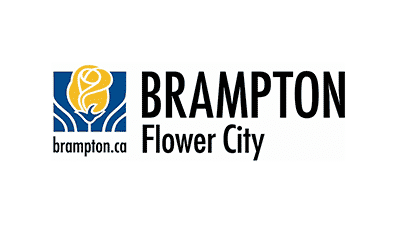The Government of Canada invests in road and rail infrastructure for the Port of Vancouver and Canadian National
The Voice of Canada News
The quality of Canada’s transportation infrastructure and the efficiency of the country’s trade corridors are key to the success of Canadian firms in the global marketplace. The Government of Canada supports infrastructure projects that create quality middle-class jobs and boost economic growth.
Marc Garneau, Minister of Transport, announced a major investment of $167 million for three projects that will help Canadian businesses compete globally by making improvements to port infrastructure and by increasing the capacity of the rail infrastructure that serves the south shore port area, ensuring goods move efficiently to market.
The first two projects are led by the Vancouver Fraser Port Authority, with investment from Canadian National Railway and Canadian Pacific Railway and include:
- improving the existing Thornton Rail Tunnel ventilation system so that trains can pass through the tunnel more frequently;
- improving the rail corridor by building 5.5 kilometres of track adjacent to the existing double-tracked corridor;
- designing and raising Douglas Road so it crosses over the existing Canadian National railway l corridor;
- building the Centennial Road overpass, a 600 metre-long, two-lane elevated viaduct structure;
- extending the existing two-lane Waterfront Road by 600 metres;
- realigning 350 metres of Commissioner Street; and
- building 9.4 kilometres of new siding track and reconfiguring train switching operations within the Canadian Pacific railway corridor, along the south shore of Burrard Inlet in the Cities of Vancouver and Burnaby.
The third project led by Canadian National, with investment from the Vancouver Fraser Port Authority, involves designing and building a 4.2 kilometre-long secondary track, parallel to the existing Burrard Inlet line, in the City of Vancouver. The increased rail capacity will support the flow of goods through the south shore port area, as trade volumes continue to grow.
The projects will increase the efficiency and capacity of the rail network servicing the north and south shores of the Port of Vancouver, while also facilitating the movement of goods and reducing the effects of rail traffic on the community. In addition, these projects will improve safety with better access to and from the south shore waterfront.
The Government of Canada is supporting infrastructure projects that contribute most to Canada’s continued success in international trade. For example, projects being funded will:
- support economic activity and the physical movement of goods or people in Canada;
- help the transportation system withstand the effects of climate change and make sure it is able to support new technologies and innovation;
- address transportation bottlenecks and congestion along Canada’s trade corridors; and
- increase the fluidity of Canadian trade around the world through our ports, airports, roads, railways, intermodal facilities, bridges and border crossings.
Provincial, territorial and municipal governments, Indigenous groups, not-for-profit and for-profit private-sector organizations, federal Crown Corporations, Canadian Port Authorities, and National Airport System Airport Authorities are all eligible for funding under the National Trade Corridors Fund.
Quotes
“We are pleased to invest in these important upgrades to the Port of Vancouver and Canadian National. Moving cargo efficiently throughout our West Coast is key to maintaining and enhancing our capacity for trade with Asia. Helping businesses move their goods to market will stimulate economic growth, help grow the middle class and foster long-term prosperity.”
Marc Garneau
Minister of Transport
“It’s critical that we provide for the smooth movement of people and goods to foster economic growth and take advantage of the trade opportunities offered by Canada’s Asia-Pacific Gateway. These projects will increase capacity, reduce logistics costs and improve access for local industries.”
Terry Beech
Member of Parliament for Burnaby North — Seymour
“British Columbia’s history was forged with the arrival of the railway in 1885. Since then, Vancouver has played a central role in trade, ensuring products from across Canada make it to Asia and Pacific rim markets. These upgrades to our railway system, including the Thornton Rail Tunnel, are an important part of boosting Canada’s competitive edge on the world stage.”
Hedy Fry
Member of Parliament for Vancouver Centre
Quick facts
- The Port of Vancouver is a critical link to Asia, most notably with China, South Korea and Japan. The United States is also among its principal trading links.
- The Port of Vancouver is the 3rd largest port in North America in terms of volume and the largest port in Canada, almost 4 times larger than Canada’s second busiest port (Montréal) with 142 million tonnes of cargo handled in 2017 (2.7 million tonnes per week).
- Transportation is an important element of Canada’s trade with other countries. In 2017, total international merchandise trade amounted to $1.1 trillion. The United States continued to be Canada’s top trade partner, with $703 billion in trade ($415 billion exported, $288 billion imported), accounting for 63.5 per cent of total Canadian trade in 2017.
The Government of Canada places a strong emphasis on exports because of the connection between trade and good, well-paying jobs, as industries that are export-intensive pay wages that are, on average, more than 50 per cent higher than industries that are not.



 “It’s critical that we provide for the smooth movement of people and goods to foster economic growth and take advantage of the trade opportunities offered by Canada’s Asia-Pacific Gateway. These projects will increase capacity, reduce logistics costs and improve access for local industries.”
“It’s critical that we provide for the smooth movement of people and goods to foster economic growth and take advantage of the trade opportunities offered by Canada’s Asia-Pacific Gateway. These projects will increase capacity, reduce logistics costs and improve access for local industries.” “British Columbia’s history was forged with the arrival of the railway in 1885. Since then, Vancouver has played a central role in trade, ensuring products from across Canada make it to Asia and Pacific rim markets. These upgrades to our railway system, including the Thornton Rail Tunnel, are an important part of boosting Canada’s competitive edge on the world stage.”
“British Columbia’s history was forged with the arrival of the railway in 1885. Since then, Vancouver has played a central role in trade, ensuring products from across Canada make it to Asia and Pacific rim markets. These upgrades to our railway system, including the Thornton Rail Tunnel, are an important part of boosting Canada’s competitive edge on the world stage.”
